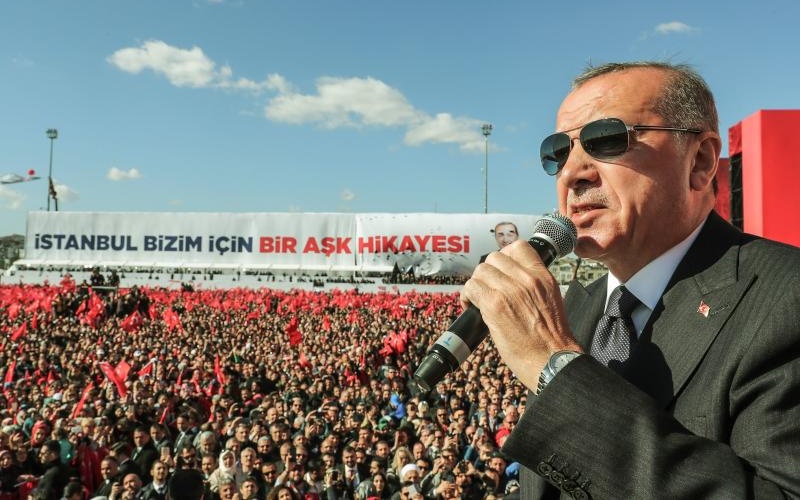Turkey’s President Recep Tayyip Erdoğan addresses an election rally in Istanbul, March 24, 2019
Populism has become a 21st-century buzzword for movements from far-right groups in Europe to the hard-right Bolsonaro Government in Brazil to Trumpists in the US to the rhetoric of Turkish President Recep Tayyip Erdoğan.
But is there a path to a populism that is not damaging through its polarization of politics and culture? If not, can we establish a constructive alternative in civil society?
For answers, World Unfiltered turns to Professor Emre Erdoğan of İstanbul Bilgi University.
See the Populism in Action Project on EA WorldView
Watch all World Unfiltered Videos
2:00: Is polarization the next political pandemic after populism? Is there a relationship between the two?
7:15: Is affective polarization defined by political parties? Is this distinctive in 2021 or have we seen it for some time?
11:50 Is affective polarization greater with respect to political party than it is to religion or economic class?
13:52: To what extent is affective polarization in Turkey led by President Erdoğan?
17:50: What does “purity” mean in Turkish politics?
18:50: Is it possible in Turkey to promote a populism which is not a populism of division?
21:25 Why was it in 2013 that Erdoğan changed his rhetoric and started to be more popülist?
25:20: Are we locked into a polarization at the highest levels of “us versus them” — or for Erdogan, “The State is Me” versus all other institutions?
28:25: Can Erdoğan continue to appeal to the people with his brand of populism if the economy runs into crisis?
34:25: What is the way out of the damage of affective polarization in Turkey right now? Is there a way out?
38:55: Out of the tragedy of Coronavirus, can there be a promotion of collective responsibility and collective action which can challenge polarization?
43:35: Are you hopeful that civic engagement can come out on top against populism, polarization, and misinformation?

